Introduction
Can Parakeets Live Alone: Parakeets, often referred to as budgerigars or budgies, are small and vibrant parrot species that have captured the hearts of bird enthusiasts worldwide. These charming and sociable creatures are known for their vivid plumage, playful demeanor, and ability to mimic sounds. However, one common thing that often arises among prospective parakeet outside owners is whether these birds can live alone or if they require the companionship of their own kind. It depends on various factors, including the bird’s individual personality, the amount of time the owner can spend with them, and the environment in which they are kept. Parakeets are inherently social birds, native to the arid regions of Australia, where they form flocks in the wild.
In their natural habitat, they engage in social activities, grooming each other, and communicating through chirps and songs. Therefore, it’s no surprise that many people assume that parakeets must always be kept in pairs or groups to thrive. However, parakeets are also highly adaptable creatures, and their ability to bond with humans should not be underestimated. If with ample attention, mental stimulation, and affection from their human caregivers, many parakeets can lead contented lives as single pets. In such cases, the owner essentially becomes their feathered friend and source of social interaction.
These birds can become incredibly attached to their owners, learning to mimic their voices and even developing unique non-verbal ways of communicating. On the other hand, there are parakeets that may feel lonely or stressed when kept in solitary confinement, especially if their human companions are frequently absent. This can lead to behavioral issues such as excessive vocalization, feather plucking, or aggressive behavior. In such instances, a companion of the same species might be the best solution to ensure the bird’s emotional well-being. While some parakeets thrive as solo pets, others may benefit from the companionship of another parakeet.
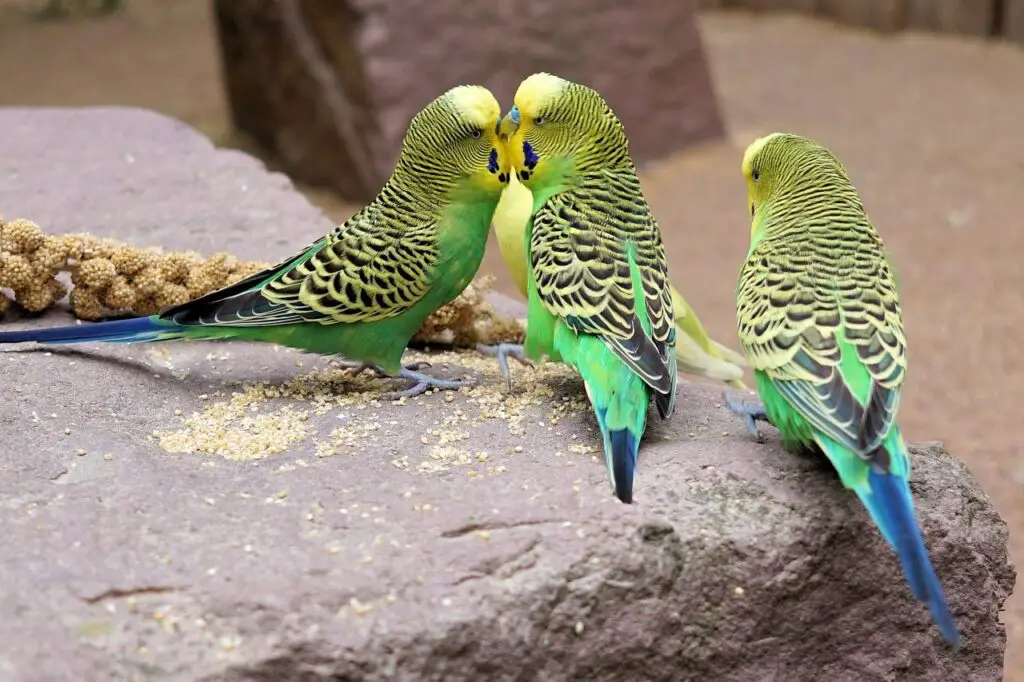
Can I have just one parakeet?
As a general rule, a pair of parakeets will be happier than a single bird. All your bird needs is a companion – which means another bird, or you – and it will be content. If you only keep one bird, you will need to be its friend and companion. This means spending lots of time with the parakeet every day.
In their natural habitat, parakeets are native to the arid regions of Australia, where they form flocks that can number in the hundreds or even thousands. This social instinct is deeply ingrained in their nature. In the wild, they engage in activities like grooming each other, playing, and communicating through an array of chirps and songs. Given their strong flocking tendencies, it’s easy to assume that parakeets must always be kept in pairs or groups to thrive.
While parakeets are undoubtedly social creatures, they are also highly adaptable and can form strong bonds with their human caregivers. If you’re a parakeet owner who can devote ample time and attention to your feathery friend, it is indeed possible to keep a single parakeet content and happy. In this scenario, you effectively become their companion and source of social interaction.
One of the advantages of having a lone parakeet is that they can develop a unique bond with you. They might learn to mimic your voice, respond to your presence, and even display endearing behaviors that signal their attachment. This close connection can be incredibly rewarding for both the parakeet and the owner.
On the other hand, there are parakeets that may not thrive in solitary confinement, especially if their human companions are frequently absent due to work or other commitments. Loneliness and boredom can lead to behavioral issues such as excessive vocalization, feather plucking, or even aggression.
Can parakeets live without a partner?
Budgies and parakeets need to live in flocks with other birds and have to form close relationships to survive and breed. Budgies in particular are known to be monogamous and form a close relationship with one partner for significant periods of time.
While parakeets are inherently social creatures, they are also highly adaptable and capable of forming strong bonds with their human caregivers. This adaptability means that, under the right circumstances, a single parakeet can live a happy and fulfilling life. Owners who can devote significant time and attention to their solo parakeet often find that these birds become incredibly attached to them.
They may learn to mimic their owner’s voice, exhibit affectionate behaviors, and even engage in interactive play. In essence, the human caregiver becomes the parakeet’s companion and source of social interaction. However, there are situations where keeping a lone parakeet may not be the best choice. Parakeets that are left alone for extended periods due to their owner’s work or other commitments may experience loneliness and boredom.
These feelings can manifest as behavioral issues, including excessive vocalization, feather plucking, or aggression. The decision to keep a parakeet without a partner or introduce a companion should be based on a careful assessment of your own lifestyle and the individual bird’s needs. If you can ample social interaction, mental stimulation, and a loving environment, a lone parakeet can thrive and develop a deep bond with you.
Should I get 2 parakeets or 1?
Parakeets are the same. You should get two; they need a companion. However, if you want the birds to bond more strongly with you, you might put them in a breeding cage with removable dividers, and socialize them separately at first. When you’re ready, take the dividers out.
Parakeets are naturally social birds with a strong inclination towards flocking. In their native Australia, they form flocks in the wild, engaging in activities like grooming, playing, and communicating through distinctive chirps and songs. This social nature raises the question of whether a single parakeet can be content in captivity without the companionship of its own kind.
One of the primary advantages of getting two parakeets is that they each other with social interaction and companionship. Having a companion helps simulate the natural flocking instincts of parakeets, reducing the likelihood of loneliness and boredom. With a pair of parakeets, they can engage in mutual grooming, play together, and communicate in their unique avian language.
While having two parakeets offers various benefits, some individuals opt for a single parakeet, and this decision can be appropriate in certain circumstances. If you can dedicate ample time and attention to a lone parakeet social interaction and mental stimulation, the bird can develop a strong bond with you.
Is it OK to leave a parakeet alone?
It’s not advisable to be left alone for a week since they need fresh water, food and playing daily. They don’t like to be lonely or bored. It could lead to boredom or even depression. The maximum of leaving them alone without supervision are only two days, that’s it.
In their natural habitat, parakeets are native to the arid regions of Australia, where they naturally form flocks. These flocks can number in the hundreds or even thousands, and the birds engage in various social activities such as grooming, playing, and communicating through chirps and songs. This inherent sociability raises concerns about the effects of isolation on these birds when kept as pets.
Ensure that your parakeet has a spacious and comfortable cage with toys, perches, and fresh water. A balanced diet, including seeds, pellets, fresh fruits, and vegetables, to ensure they have access to proper nutrition. Offer toys, mirrors, and other forms of enrichment to keep your parakeet mentally engaged and prevent boredom.
Parakeets benefit from exposure to natural light, so place their cage near a window or full-spectrum lighting. To mitigate any distress when leaving your parakeet alone, invest time in building a strong bond with your feathered friend. Interact with them daily, engage in conversations, and offer treats for positive reinforcement. A well-bonded parakeet is more likely to handle alone time with less anxiety.
Are parakeets noisy?
Parakeets are noisy birds when it comes to whistles, talking, and daily chitter-chatter. Screaming on the other hand, is not a typical behavior of parakeets. Some parakeets might let out a light scream once in a while, but if you hear what sounds like a genuine scream from your bird, there might be something wrong.
Parakeets are naturally vocal birds, and they use their vocalizations as a means of communication. This includes chirping, chattering, and the occasional squawk. Parakeets are social animals, and in the wild, they communicate with their flock members through a range of sounds. When kept as pets, they continue this behavior, using vocalizations to interact with their human caregivers and even their own reflections in mirrors or shiny objects within their cages.
Parakeets’ chirping can be delightful and melodic to many owners. It often serves as a form of self-expression, a way to convey contentment, or even as a sign of their excitement when you enter the room. However, that the volume and frequency of their vocalizations can vary from bird to bird. Some parakeets are naturally more vocal than others.
Parakeets tend to be most active and vocal in the morning and evening. These are the times when they are naturally more active and alert. Morning chatter often signals their excitement for the day ahead, while evening vocalizations may be part of their wind-down routine. Some owners find this burst of energy in the early morning to be a pleasant way to wake up, while others may find it disruptive.
Can a parakeet eat a banana?
Bananas are safe for healthy parakeets when fed in moderation, but they shouldn’t eat more than a few slices a day. If your parakeet has ongoing health issues, speak to your veterinarian before adding any new foods to their diet.
Sugar Content: Bananas are relatively high in natural sugars. While these sugars are not necessarily harmful, excessive consumption can lead to weight gain and potential health issues. Monitor the amount you offer.
Messiness: Bananas can be messy, as they are soft and can leave residue on your parakeet’s beak and feathers. Clean their cage and perches regularly to prevent bacterial growth.
Allergies: Just like with any new food, monitor your parakeet for any adverse reactions or allergies when introducing bananas for the first time. Signs of allergies may include digestive issues or changes in behavior.
Can parakeets eat fruit?
Fruits and vegetables are part of the standard diet for pet parakeets. They enjoy the different textures and tastes, and fresh foods are part of the bird’s sensory world. Unlike human children, it’s perfectly okay for parakeets to play with their food! Always offer fruit and veg raw.
Moderation: Fruits should be given as treats or supplements to their primary diet. Limit fruit intake to a few times a week to prevent overconsumption. Always offer fresh fruit that is clean and free from pesticides or contaminants. Wash fruits thoroughly before serving.
Variety: Rotate the types of fruit you offer to ensure a diverse range of nutrients. Slice or chop fruits into small, bite-sized pieces to make them easy for your parakeet to handle. Watch your parakeet’s reaction to new fruits. Some birds may have preferences, while others may not be interested in certain fruits.
Vitamins: Fruits are a rich source of vitamins, including vitamin C, which is essential for their overall health and immune system. Fruits minerals like potassium and calcium, which contribute to bone health and muscle function. The fiber in fruits aids digestion and helps prevent constipation, a common issue in parakeets.
How intelligent are parakeets?
The “parakeets” are known for their intelligence and are even able to mimic human speech, but that intelligence might serve an even more important function: reproduction and pair bonds, according to a new study by a researcher at the University of Colorado Boulder.
Parakeets are highly social birds by nature, and this is where their intelligence often shines. They possess strong communication skills and are known for their ability to mimic sounds, including human speech and various noises from their environment. While they may not understand the meaning of the words they mimic, they can use these sounds to interact with their human caregivers and fellow parakeets.
In the wild, parakeets live in flocks, and their social intelligence plays a crucial role in their survival. They engage in complex social interactions, such as grooming each other, sharing food, and working together to protect the flock from predators. This social intelligence extends to their ability to recognize individual members of their flock and even hold grudges against other birds that have wronged them.
Parakeets have demonstrated impressive problem-solving skills in various studies. They can learn to navigate through mazes, solve puzzles, and figure out how to access food in intricate feeders. This ability suggests a level of cognitive flexibility and adaptability. One study even showed that parakeets possess a form of logical reasoning. They were able to deduce the location of hidden food based on observing the movements of a human demonstrator, a skill previously thought to be exclusive to more complex animals.
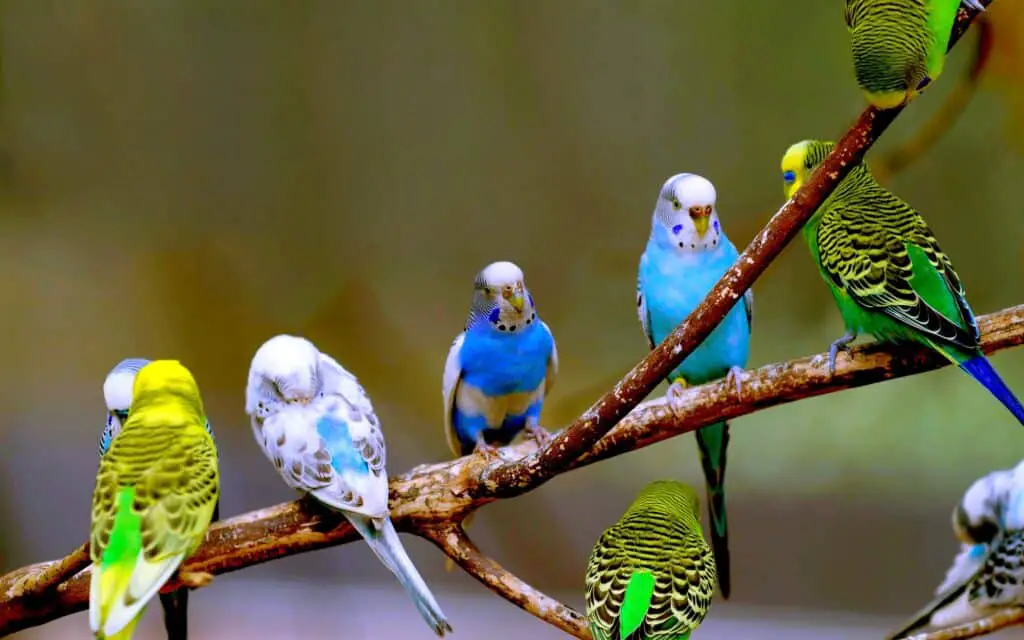
Conclusion
In case parakeets can live alone, we have unraveled a multifaceted aspect of these captivating birds’ lives. Parakeets, with their sociable nature and penchant for flocking in the wild, seem predisposed to seek companionship. However, as we’ve explored, the answer to whether they can live alone is not a definitive yes or no but rather contingent upon various factors. First and foremost, it’s crucial to recognize that parakeets, like all living creatures, exhibit individuality in their personalities and needs. Some parakeets are more adaptable and content to form a strong bond with their human caregivers, thriving as single pets. These birds are often affectionate, enjoy interacting with their owners, and can even develop unique ways of communicating, becoming cherished companions in their own right.
However, for other parakeets enemies solitude can be a source of stress and loneliness. These birds may exhibit behavioral issues when kept in isolation, such as excessive vocalization, feather plucking, or aggression. For them, the presence of a fellow parakeet can essential social interaction and emotional support, alleviating these problems and promoting a happier and healthier life. In the end, the decision of whether to keep a parakeet alone or in the company of another bird is one that should be made with careful consideration and a deep understanding of the individual bird’s needs. It is the responsibility of every parakeet owner to assess their pet’s temperament and behavior, as well as their own ability to the necessary time and attention.
If a parakeet exhibits signs of distress or loneliness, introducing a companion of the same species can be a compassionate and responsible choice. Ultimately, the bond between a parakeet and its owner is a unique and precious one, regardless of whether the bird lives alone or with a companion. What truly matters is that parakeets are cared for with love, attention, and respect for their individuality. Whether solo or in pairs, these charming birds have the capacity to bring joy and companionship to our lives, enriching our homes with their colorful plumage and lively personalities.

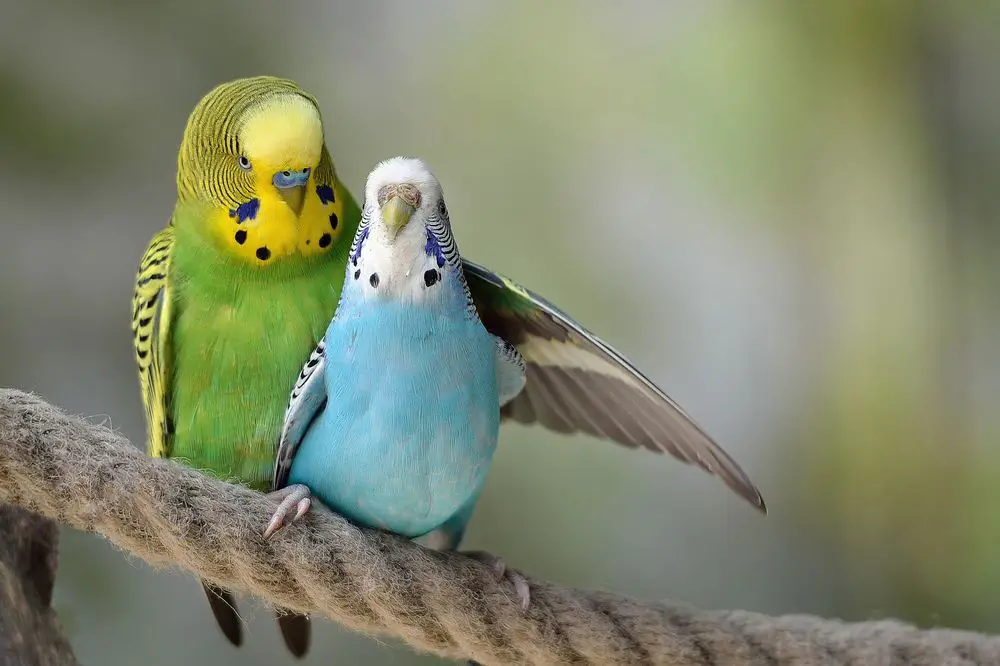
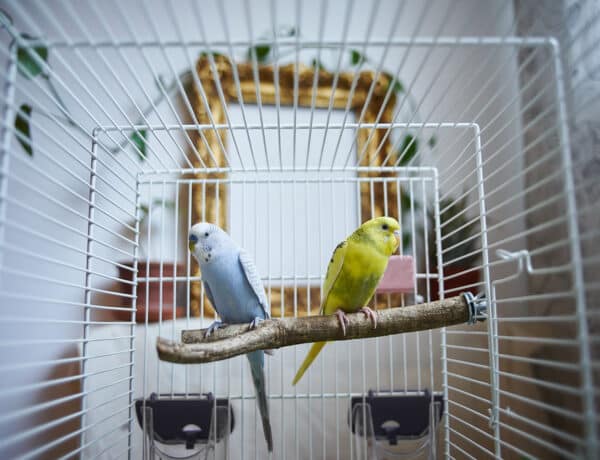
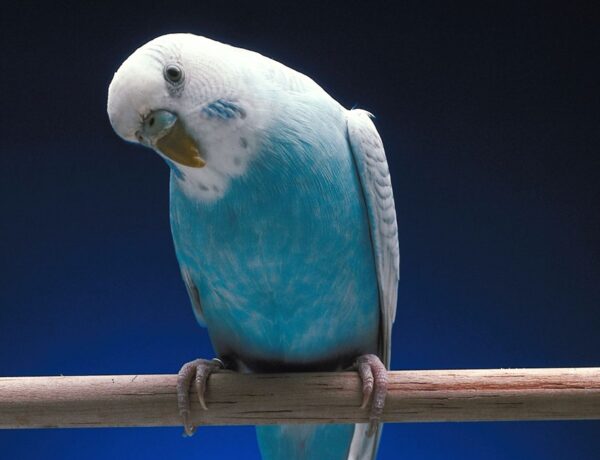
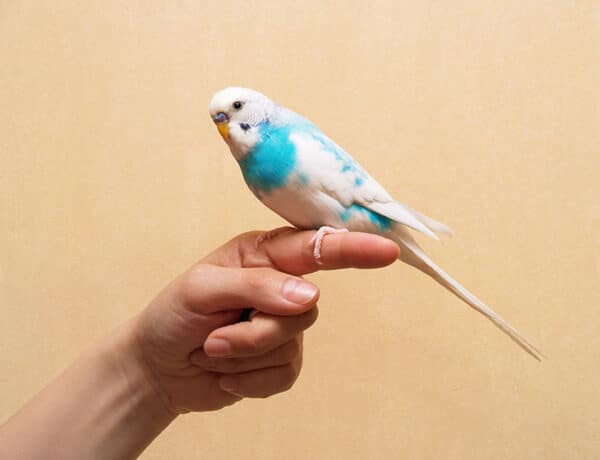
No Comments